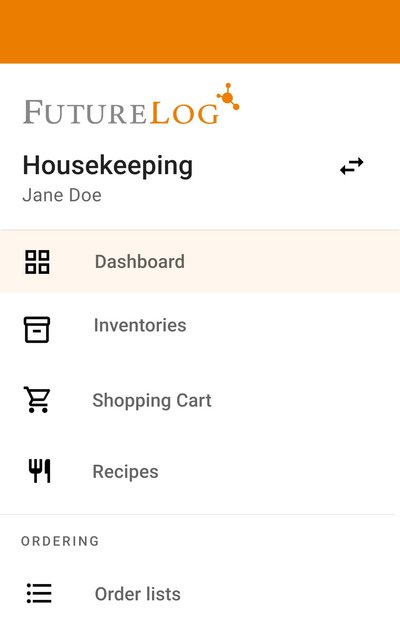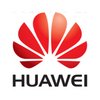
What Is Procure To Pay – A Guide To Procure-To-Pay (P2P) Process
In today's fast-paced hospitality industry, efficient and effective procurement is essential for organisations that intend to thrive in the long term. And one key component of a successful procurement strategy is the whole procure-to-pay process. But what exactly is the procure-to-pay process and how can the way you implement it make such a big difference to how your organisation manages its procurement activities? Read on to find the answers to all of these questions, along with many others that you may have about the procure-to-pay process in the hospitality industry.
What Is Procure-to-Pay?
procure-to-pay
The procure-to-pay process refers to the steps an organisation follows when buying new goods, services, or capital equipment. As the name suggests, the process encompasses the entire procurement lifecycle, from identifying a need for goods or services, all the way through to making the final payment to suppliers. To optimise this critical workflow, many organisations are turning to procure-to-pay software solutions. Such solutions, when designed specifically for the hospitality industry, can help streamline all procurement activities, from food & beverage and cleaning supplies to the acquisition of new linen and fixed assets.

Understanding the Importance of the Procure-to-Pay Process:
P2P-Process
The procure-to-pay process consists of a series of interconnected steps: requesting, ordering, receiving, and paying for goods or services (and capital equipment when required). It begins with identifying a need, after which follows a requisition that must be approved before it can be acted upon. Once a requisition is approved, a purchase order is generated and sent to the relevant supplier. Upon receiving the goods or services, the organisation must verify the delivery and match it with a purchase order and invoice. Finally, the payment is processed, which completes the procure-to-pay cycle. It is critically important to ensure that every step is performed as efficiently as possible because the whole procure to pay journey can have a significant impact on the profitability of your hospitality business.
Challenges in a Traditional Procure-to-Pay Process
A traditional (i.e., non-digital) procure-to-pay process presents commercial organisations with a number of challenges, some of which can be exceptionally difficult to overcome. Among the issues most commonly encountered by organisations that continue to follow a traditional procure to pay process are the following:
You may encounter other serious challenges in addition to these, depending on the precise nature of your business.
- Human Error
Tedious manual data entry tasks increase the risk of human error. Even the most conscientious employees will struggle to achieve a level of accuracy anywhere near 100%. - Cost
Manually entering large amounts of data on a daily basis is not just a problem because of the human error potential, it is also labour-intensive, making it a costly approach too. - Limited Visibility
While it is possible to keep detailed paper records in a traditional procure-to-pay system, finding useful information in such a system can be very difficult, making any meaningful data analysis close to impossible. It can also make it hard to track orders, monitor supplier performance and identify potential bottlenecks in the procurement process. - Compliance and Control Issues
Inadequate controls and manual procurement processes may result in non-compliance issues with regard to official regulations, contract terms, and internal company policies. Such issues can be extremely problematic, not to mention expensive, for both individual hoteliers and large hotel chain operators. - Inefficient Communication
The lack of oversight afforded by traditional procure-to-pay practices inevitably leads to communication gaps between stakeholders, including procurement teams, approvers, and suppliers. These gaps often result in unnecessary delays and confusion.
You may encounter other serious challenges in addition to these, depending on the precise nature of your business.

The Advantages of Procure-to-Pay Software Solutions
Procure-to-pay software solutions offer a range of features and functionalities designed to streamline the procurement process by automating many of the most repetitive tasks. By eliminating many manual tasks, such software is able to deliver several key benefits to hospitality industry organisations. Among these benefits, the following are of particular interest to commercial concerns in all market sectors and geographical regions:
- Automation
Procure-to-pay software automates various steps in the procurement process, such as purchase requisition creation, order placement, invoice matching, and payment processing. This reduces manual effort, which, in turn, minimises errors, reduces costs, and accelerates the entire procurement process. - Enhanced Visibility and Control
Modern solutions provide real-time visibility into the procurement lifecycle, allowing stakeholders to track orders, monitor supplier performance and identify potential issues before they develop into critical problems. This greater level of transparency enables better decision-making and improves overall control of the procure to pay process. - Compliance and Risk Management
Procure-to-pay software solutions help organisations ensure compliance with official regulations, contract terms, and corporate policies. They can flag potential compliance issues and facilitate internal audits earlier, thereby reducing the risk of financial loss and reputational damage. - Supplier Collaboration
Many procure to pay software suites feature supplier portals, enabling streamlined communication and collaboration with all suppliers. This facilitates order management, improves response times, and strengthens supplier relationships. - Analytics and Reporting
Most procure-to-pay software solutions offer robust analytics and reporting capabilities. These capabilities facilitate the generation of actionable insights through analysis of supplier performance metrics and procurement process bottlenecks, helping organisations to make data-driven decisions and pursue a program of continuous improvement.
Procure-to-pay software solutions have already revolutionised the way that many hospitality industry organisations manage their procurement processes. By automating manual tasks, improving visibility, enhancing control, and facilitating collaboration, the best solutions can help businesses streamline operations, reduce costs, mitigate risks, and achieve greater efficiency in all areas. Embracing a modern procure to pay software solution can truly be a game-changer for organisations working hard to stay competitive in today's dynamic marketplace.

Welcome to the Future of Hospitality Inventory Management
Get in touch
Whatever the size of your hospitality organisation, a well-designed procure-to-pay software solution could help you enjoy a competitive edge. The FutureLog procurement platform is designed specifically for the hospitality industry, making it the perfect choice for your business. For more details of what it has to offer, or to arrange a commitment-free demonstration, please do not hesitate to contact us.
Harry Osborn
Hundreds of happy clients
What the customers say
OUR APP: Procure-to-pay while on the go!
From placing orders and managing recipes to approving invoices and viewing reports, with FutureLog’s native mobile app you’ll have all the power and automation of our P2P web solutions conveniently at your fingertips. Whether you’re online or offline, you can stay in control.



